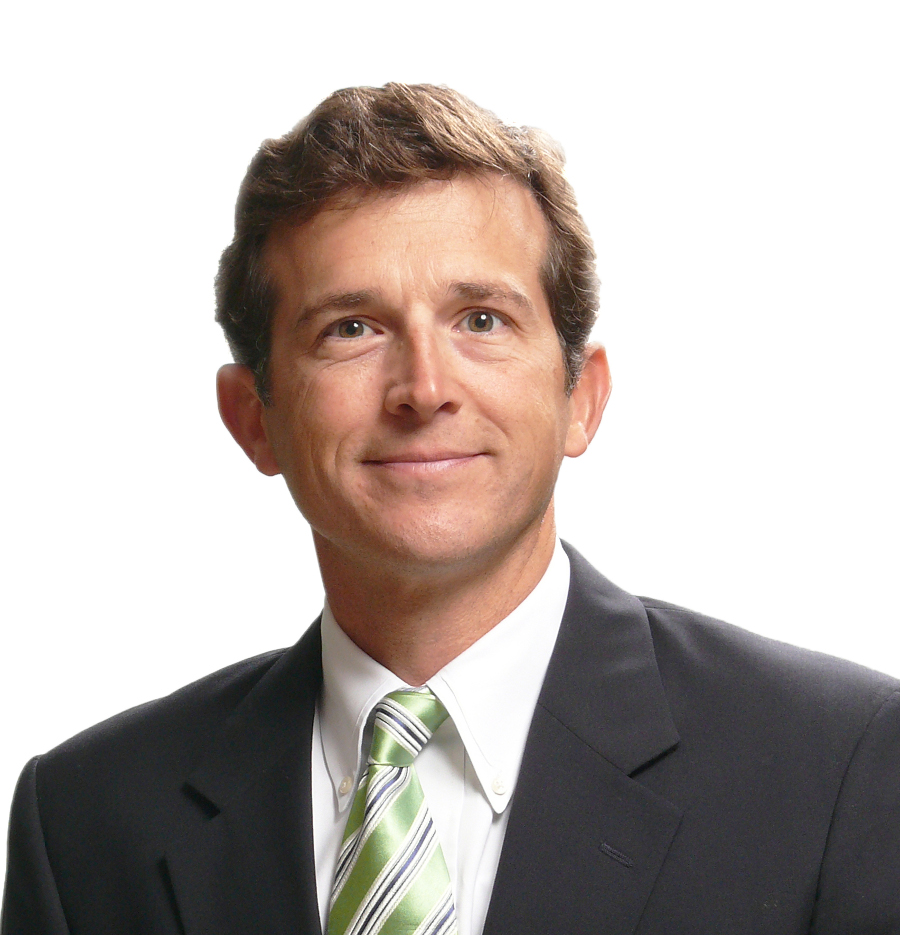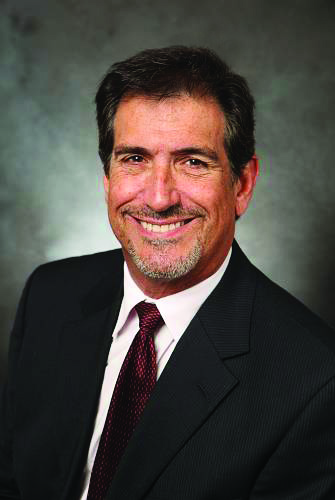Two orthopedic surgeons who perform cases at ambulatory surgery centers discuss the advantages of adding sports medicine procedures.
Question: Why should orthopedic-driven ASCs consider sports medicine as a focus?
Roger Ostrander, MD, Orthopedic Surgeon, Andrews Institute for Orthopaedics & Sports Medicine, Gulf Breeze, Fla.: At our surgery center, we like having a high percentage of orthopedics because the reimbursement tends to be high and the volume is good. Also many types of orthopedic and particularly sports medicine cases are amenable to outpatient surgery. A lot of sports medicine procedures are minimally invasive and there isn't a lot of blood loss.
of orthopedics because the reimbursement tends to be high and the volume is good. Also many types of orthopedic and particularly sports medicine cases are amenable to outpatient surgery. A lot of sports medicine procedures are minimally invasive and there isn't a lot of blood loss.
From an orthopedic surgeon standpoint, there are several advantages to performing cases at ASCs. Surgery centers tend to be more efficient, and I can get a lot done in a short period of time. Hospital operating rooms function the way they have for years and they tend to not be as efficient.
Q. Do orthopedic surgeons prefer performing sports medicine procedures at ASCs?
 Gary Brazina, MD, Orthopedic Surgeon, DISC Sports and Spine Center, Marina del Rey, Calif.: Sports medicine dovetails so well with the ASC setting and it usually involves the perfect patient population — young, healthy and athletic individuals. This is a population that has low risks for complications, and they have few co-morbid conditions that might require an inpatient setting.
Gary Brazina, MD, Orthopedic Surgeon, DISC Sports and Spine Center, Marina del Rey, Calif.: Sports medicine dovetails so well with the ASC setting and it usually involves the perfect patient population — young, healthy and athletic individuals. This is a population that has low risks for complications, and they have few co-morbid conditions that might require an inpatient setting.
Also, most of the procedures that we do in sports medicine can be done in an outpatient setting, such as ACL reconstructions, ankle surgery, ligament surgery and so on. ASCs are cost effective, and the surgeon has greater control over the surgical environment since there is less bureaucracy than in a hospital setting.
Q: What are some of the best strategies for attracting new sports medicine physicians to ASCs?
Dr. Ostrander: ASCs need to bring on new sports medicine physicians who have high case volumes. The best strategy to attract them would be the efficiency component. I can tell you that it drives most surgeons crazy when turnover is slow at the facility and there is a lot of wasted time.
Customer service is another selling point. Having a facility that can cater well to patients is appealing to surgeons. Also, if the center can put together an anesthesia program with anesthesiologists who are trained in regional nerve blocks, which makes patients more comfortable, would also attract new sports medicine physicians.
Dr. Brazina: Specifically marketing to sports medicine physicians is a good way to get them on board. Partners and administrators of the ASC need to talk directly to the sports medicine physicians they are trying to attract and show them what advantages the center can provide. For example, you can offer block time, specific equipment and high nurse-to-patient ratios, which can provide increased patient satisfaction and a more personalized experience than one would find in a hospital setting.
Q. What are the challenges for building a sports medicine program at ASCs?
Dr. Brazina: There are lots of ASCs out there, and the competition for sports medicine physicians is quite high. The sports medicine specialty is also equipment-intensive. A challenge is to provide the new physician with the individual equipment or implants they may desire. New equipment is expensive, and trying to satisfy everyone's individual preferences can be costly and duplicative. Surgeons want the kind of equipment that they are used to, and it can be challenging for a surgery center. A good manager needs to attempt to have a unified program of equipment and implant purchasing that reduces costs, yet satisfies the various surgeons' wants, needs and desires.
Administrators should also meet with physicians on a regular basis so that surgeons know what equipment is available at the facility. ASC administrators need to manage inventory effectively.
Q. How can ASCs market sports medicine services to patients and referring physicians?
Dr. Ostrander: The surgery center can market their facility and the fact that they have good physicians and the latest pain management techniques, such as regional nerve block programs that minimize pain.
Dr. Brazina: On a strategic level, you have to position yourself in the marketplace through branding. People have to know that your center is a quality center.
Patient satisfaction is also key. Word-of-mouth is still the best way to market. A happy patient will tell five people about your center, and an unhappy patient will tell 100. The patient has to be treated the way you would like to be treated.
Q. What are some other strategies for optimizing the sports medicine specialty?
Dr. Brazina: Other strategies include keeping abreast of new and changing procedures and trends in orthopedics. Orthopedic surgery is a dynamic subspecialty and changes rapidly. What we do and how we manage patients, changes quickly. For example, in the past, ACL reconstruction patients were kept in the hospital for a few days at least. But now it can be performed safely as an outpatient procedure.
Dr. James Andrews Performs Elbow Surgery on Pittsburgh Pirate Kyle McPherson
Dr. Tariq Hussain Joins UHS Orthopedics-Norwich
Question: Why should orthopedic-driven ASCs consider sports medicine as a focus?
Roger Ostrander, MD, Orthopedic Surgeon, Andrews Institute for Orthopaedics & Sports Medicine, Gulf Breeze, Fla.: At our surgery center, we like having a high percentage
 of orthopedics because the reimbursement tends to be high and the volume is good. Also many types of orthopedic and particularly sports medicine cases are amenable to outpatient surgery. A lot of sports medicine procedures are minimally invasive and there isn't a lot of blood loss.
of orthopedics because the reimbursement tends to be high and the volume is good. Also many types of orthopedic and particularly sports medicine cases are amenable to outpatient surgery. A lot of sports medicine procedures are minimally invasive and there isn't a lot of blood loss. From an orthopedic surgeon standpoint, there are several advantages to performing cases at ASCs. Surgery centers tend to be more efficient, and I can get a lot done in a short period of time. Hospital operating rooms function the way they have for years and they tend to not be as efficient.
Q. Do orthopedic surgeons prefer performing sports medicine procedures at ASCs?
 Gary Brazina, MD, Orthopedic Surgeon, DISC Sports and Spine Center, Marina del Rey, Calif.: Sports medicine dovetails so well with the ASC setting and it usually involves the perfect patient population — young, healthy and athletic individuals. This is a population that has low risks for complications, and they have few co-morbid conditions that might require an inpatient setting.
Gary Brazina, MD, Orthopedic Surgeon, DISC Sports and Spine Center, Marina del Rey, Calif.: Sports medicine dovetails so well with the ASC setting and it usually involves the perfect patient population — young, healthy and athletic individuals. This is a population that has low risks for complications, and they have few co-morbid conditions that might require an inpatient setting. Also, most of the procedures that we do in sports medicine can be done in an outpatient setting, such as ACL reconstructions, ankle surgery, ligament surgery and so on. ASCs are cost effective, and the surgeon has greater control over the surgical environment since there is less bureaucracy than in a hospital setting.
Q: What are some of the best strategies for attracting new sports medicine physicians to ASCs?
Dr. Ostrander: ASCs need to bring on new sports medicine physicians who have high case volumes. The best strategy to attract them would be the efficiency component. I can tell you that it drives most surgeons crazy when turnover is slow at the facility and there is a lot of wasted time.
Customer service is another selling point. Having a facility that can cater well to patients is appealing to surgeons. Also, if the center can put together an anesthesia program with anesthesiologists who are trained in regional nerve blocks, which makes patients more comfortable, would also attract new sports medicine physicians.
Dr. Brazina: Specifically marketing to sports medicine physicians is a good way to get them on board. Partners and administrators of the ASC need to talk directly to the sports medicine physicians they are trying to attract and show them what advantages the center can provide. For example, you can offer block time, specific equipment and high nurse-to-patient ratios, which can provide increased patient satisfaction and a more personalized experience than one would find in a hospital setting.
Q. What are the challenges for building a sports medicine program at ASCs?
Dr. Brazina: There are lots of ASCs out there, and the competition for sports medicine physicians is quite high. The sports medicine specialty is also equipment-intensive. A challenge is to provide the new physician with the individual equipment or implants they may desire. New equipment is expensive, and trying to satisfy everyone's individual preferences can be costly and duplicative. Surgeons want the kind of equipment that they are used to, and it can be challenging for a surgery center. A good manager needs to attempt to have a unified program of equipment and implant purchasing that reduces costs, yet satisfies the various surgeons' wants, needs and desires.
Administrators should also meet with physicians on a regular basis so that surgeons know what equipment is available at the facility. ASC administrators need to manage inventory effectively.
Q. How can ASCs market sports medicine services to patients and referring physicians?
Dr. Ostrander: The surgery center can market their facility and the fact that they have good physicians and the latest pain management techniques, such as regional nerve block programs that minimize pain.
Dr. Brazina: On a strategic level, you have to position yourself in the marketplace through branding. People have to know that your center is a quality center.
Patient satisfaction is also key. Word-of-mouth is still the best way to market. A happy patient will tell five people about your center, and an unhappy patient will tell 100. The patient has to be treated the way you would like to be treated.
Q. What are some other strategies for optimizing the sports medicine specialty?
Dr. Brazina: Other strategies include keeping abreast of new and changing procedures and trends in orthopedics. Orthopedic surgery is a dynamic subspecialty and changes rapidly. What we do and how we manage patients, changes quickly. For example, in the past, ACL reconstruction patients were kept in the hospital for a few days at least. But now it can be performed safely as an outpatient procedure.
More Articles on Orthopedics:
University of Rochester Medical Center Receives 750k Gift for Orthopedic ResearchDr. James Andrews Performs Elbow Surgery on Pittsburgh Pirate Kyle McPherson
Dr. Tariq Hussain Joins UHS Orthopedics-Norwich

